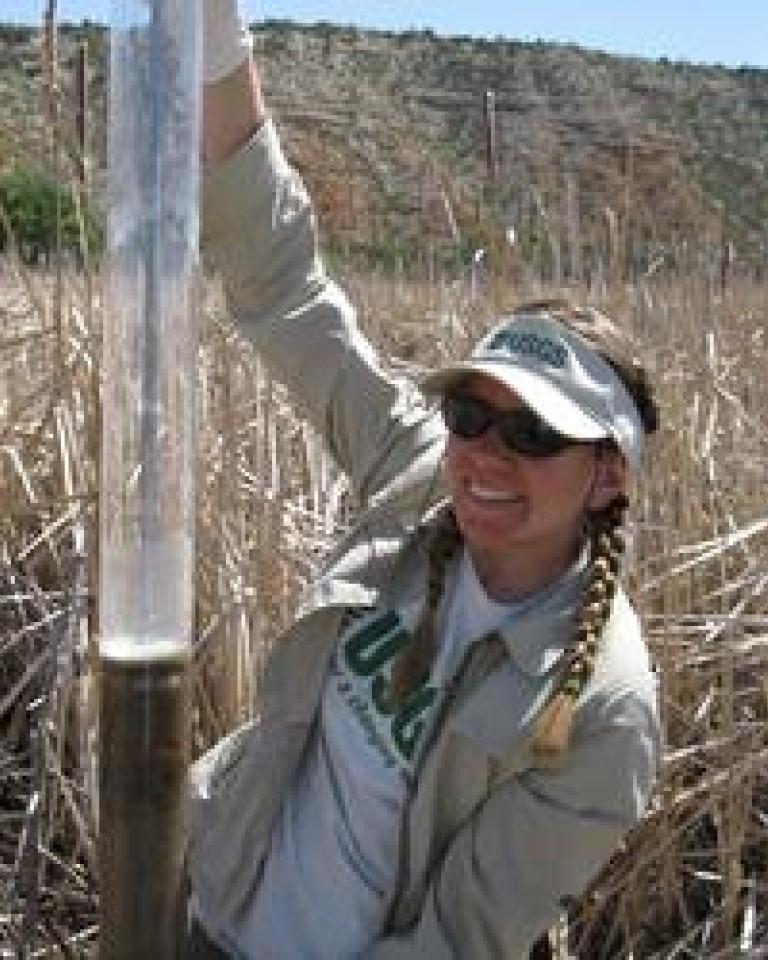Kimberly Beisner

ALUMNI SPOTLIGHT | FEBRUARY 2020
KU major: Geology, Class of 2006
Current occupation: Hydrologist with the U.S. Geological Survey
Research mentor while at KU: Gwen Macpherson
Describe the undergraduate research/creative experience that you had while at KU: I collected and analyzed monthly groundwater samples for 3 and a half years from the Konza Prairie LTER for a long term study led by Dr. Macpherson. As I gained more experience, I was able to develop two research projects at the Konza Prairie to gain additional information about part of the Konza groundwater system. One project investigated continuous groundwater level changes every 15 minutes, which showed diurnal fluctuations in water level during the late summer months, potentially driven by water usage from woody vegetation. The other project investigated isotopic ratios (including boron) to understand changes in mineral weathering.
Q: What do you think was the most important thing you learned while doing undergraduate research?
A: Undergraduate research provided an invaluable experience to develop a strong work ethic and foster my scientific curiosity. The most important thing I learned is that if you apply yourself, you can work through and understand complex systems that at first seem incomprehensible.
Q: What advice do you have for undergraduates who might be interested in doing research or creative scholarship?
A: I would strongly recommend undergraduates to talk with professors that work in areas they are interested in learning more about. The undergraduate research experience is invaluable and provides you an opportunity to explore an area of research and see if there is something you can build upon to advance knowledge.
Q: Do you use any of the skills or perspectives gained doing research in your current occupation? How so?
A: The skills I gained in my undergraduate research are fundamental to my work ethic as a scientist. I strongly value the mentorship I received through my experience. Dr. Macpherson had high standards to ensure quality data, and she provided an environment through which the student could become proficient at a given task and then move onto the next more challenging assignment. I try to foster that environment in my current job.
Q: Many undergraduate researchers are making decisions about what to do after they graduate from KU. Having been in those shoes, what do you know now that you wish you’d known then? Do you have any advice?
A: My undergraduate research experience made me feel passionate about research and I was immediately ready to pursue a master's degree. I grew further as a scientist during my master's research and benefited from learning at a different university with a completely new set of research questions. If I could go back, it would have been nice to know what area of research I would ultimately settle into, but in some ways, the research path I took from undergraduate to master's shaped the scientist I am today.